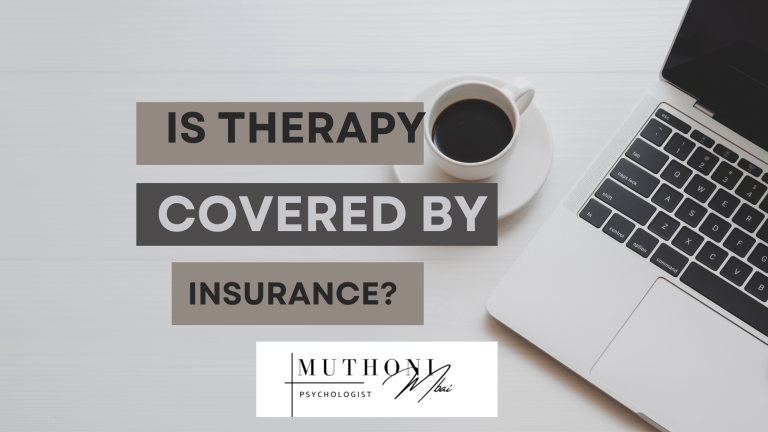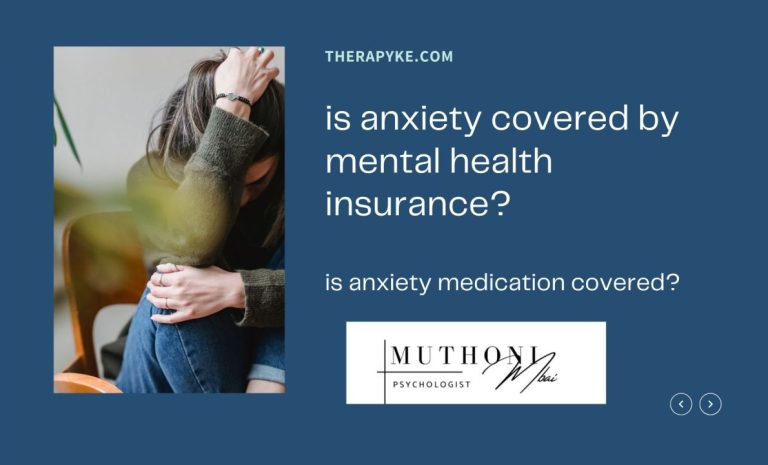
Why Is Mental Health Not Covered by Insurance?

Have you ever tried to access therapy sessions using Medicaid, Medicaid or SHA? Does your insurance mental health? If not, have you ever wondered why?
Insurance coverage often feels like a lifeline when it comes to managing health issues, so why does it fall short for mental health? As society grows more aware of mental health’s impact on our lives, it’s frustrating to find that insurance doesn’t always recognize its importance. Let’s explore why mental health isn’t fully covered, bust some common myths, and share practical tips for finding support.
If you’re considering therapy, remember to reach out to us through our Contact Page, just a click away.
Why Is Mental Health Not Covered by Insurance?
It’s a loaded question with a mix of historical, financial, and social factors. For decades, physical health has been prioritized by insurance companies, while mental health was often seen as secondary. This thinking led to a system where mental health was seen as a “luxury” rather than a necessity. Even though mental health coverage has come a long way, insurance policies often still don’t cover therapy or only cover a limited number of sessions.
On the financial side, mental health treatment can be hard for insurers to categorize and quantify, partly because mental health issues vary widely from person to person. Insurers often focus on conditions with “predictable outcomes” and standardized treatments, which doesn’t always apply to the diversity of mental health needs. Yet mental health isn’t optional—therapy and support are crucial for many to live a balanced life. For this reason, platforms like Therapyke.com offer options that aren’t as limited by insurance regulations.
Can You Get Life Insurance if You Have Mental Health Issues?
Life insurance is another area where mental health gets complicated. If you have a mental health condition, you might still qualify for life insurance, but you could face some barriers. Insurance providers often view mental health conditions as “high risk,” meaning premiums might be higher, or you might face certain exclusions. Why is this the case? Insurance companies focus on statistical risk, and untreated mental health conditions can correlate with higher mortality risks.
However, more insurance companies are evolving their view, recognizing that a managed mental health condition is just that—manageable. Having anxiety, depression, or other conditions shouldn’t mean you’re automatically “high risk.” Many insurers now factor in whether someone is actively managing their mental health. Remember, seeking therapy and taking steps toward mental wellness are empowering, not limiting.
Why Is Mental Health Not Taken Seriously?
This question gets to the heart of the problem. Mental health has historically been undervalued compared to physical health, despite how closely they’re connected. Society has long operated under the misconception that mental health issues are “in your head” and that willpower alone should overcome them. We’re finally moving away from this view, but the impact lingers.
This outdated perception doesn’t just affect individuals—it also influences policy, funding, and, of course, insurance coverage. The lack of seriousness surrounding mental health often leads to poor funding for mental health services, further perpetuating stigma. This is why accessible support matters so much.
Does US Health Insurance Cover Mental Health?
In the U.S., things are gradually improving. The Mental Health Parity and Addiction Equity Act and the Affordable Care Act both require many health plans to offer mental health coverage on par with physical health benefits. While this legislation marks a major step forward, it doesn’t guarantee full or affordable access to mental health care for everyone. For instance, some plans still have high copayments, limited therapy sessions, or networks with few mental health providers.
These restrictions can deter people from seeking therapy, especially if they feel they can’t afford it or are unsure how to navigate the process. And though U.S. coverage has expanded, many still experience out-of-pocket expenses or limited access, which underscores the need for more flexible options. Don’t let insurance hurdles prevent you from getting the support you need. Explore options like our online services, where therapy is accessible without the insurance maze.
What Is the Largest Non-Profit Mental Health Organization?
If you’re looking for broader mental health resources, one great organization is the National Alliance on Mental Illness (NAMI). NAMI is the largest non-profit mental health organization in the U.S. and provides a wealth of resources for those living with mental health conditions, their families, and their communities. They offer educational programs, advocacy efforts, and support networks, all designed to break down the stigma and improve mental health awareness and treatment.
At Therapyke.com, we’re part of a larger mission to make mental health care available to everyone. While non-profits like NAMI work on policy and community-level support, we’re here for the individual, one-on-one care that can make a real difference in your life. Think of us as your personal advocate, here to support you in your unique mental health journey.
Therapy Is Health Care. So Why Won’t Your Health Insurance Cover It?
The crux of the issue: if therapy is vital to well-being, why do insurance companies still see it as optional? Mental health care, just like physical health care, is essential. Neglecting mental health can lead to or worsen physical health problems, making comprehensive care a necessity. Mental health is central to everything we do, from how we relate to others to how we make decisions and experience joy.
Yet, many insurance policies treat mental health as “extra.” It’s partly because mental health is complex to measure. Insurance companies like predictable, clear-cut solutions, but mental health is anything but one-size-fits-all. Each person’s needs are unique, and there’s no universal “treatment plan.” Therapy is an investment in yourself, and by seeking help, you’re taking an essential step toward a healthier, happier life.
Think about it!
The reality is that mental health coverage under insurance varies widely, often depending on where you live, your insurer, and even specific policies. While we work toward a future where mental health care is fully recognized as health care, there are options you can explore today. Therapy doesn’t have to be limited by what’s covered under insurance.
At Therapyke.com, we believe everyone deserves quality mental health support, which is why we’re here to help with flexible options for therapy that don’t rely on insurance red tape. Explore our services on our Contact Page, and take a step toward the support you deserve. Mental health care is healthcare, and at Therapyke.com, we’re committed to making it accessible for you.




[…] However, this perspective ignores the preventive and transformative benefits of therapy. Without therapy, conditions like anxiety, depression, or bipolar disorder can escalate, leading to more significant and costly interventions. For a deeper dive into this issue, check out Why Is Mental Health Not Covered by Insurance? […]